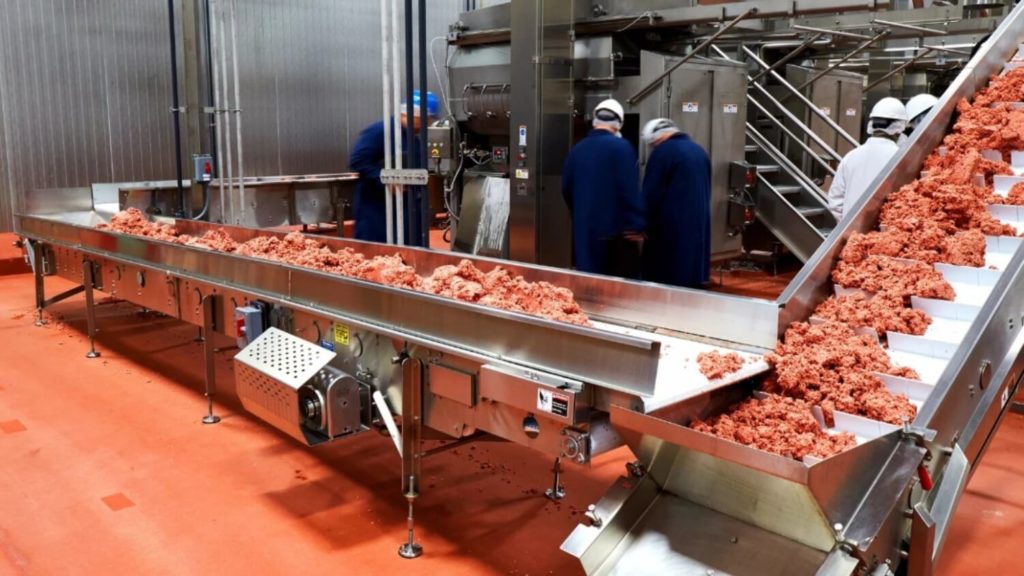Former slaughterhouse workers could train to make vegan meat through a new program from People for the Ethical Treatment of Animals (PETA).
The international animal rights organization just offered to train workers to produce vegan meat in place of traditional animal productions. This follows high rates of coronavirus (COVID-19) among meatpacking employees and the potential for meat shortages.
“PETA hopes that dropping meat for good and investing in a vegan future would not only help flatten the coronavirus curve but also help companies avert the countless other deadly illnesses that can come from farms and slaughterhouses,” says the animal rights group.
PETA also highlights the potential for meat producers themselves to switch completely to plant-based alternatives. Companies including Smithfield Foods and Hormel already produce and sell vegan meats.
Workers at slaughterhouses and meatpacking plants experienced a high rate of infection with the coronavirus. Experts highlight the inability of workers to effectively social distance while unable to take time away from their jobs. Employees describe the work as “elbow to elbow.”
Even prior to the outbreak, slaughterhouses were extremely hazardous work environments. According to the nonprofit organization the Food Empowerment Project, prioritizing profits over worker safety is not a new phenomenon. Producers that implemented social distancing measures noted that such safety protocol further slowed meat production.
Within the industry, excessive production demands are the primary cause of both worker injuries and animal welfare violations. PETA previously offered slaughterhouse workers the opportunity to retrain as flower arrangers, both “for the sake of animals and their own mental health.”

Slaughterhouse Workers and COVID-19
The meatpacking and processing industry has been significantly impacted by the coronavirus. According to USA Today, at least 167 plants experienced outbreaks. Over 9,400 people—almost entirely workers—became sick with the virus.
At least 45 workers with coronavirus died, and more than 38 plants have paused operations or closed. These include Cargill, National Beef Packing Co, Empire Kosher Poultry Inc., and Tyson Foods.
While President Donald Trump signed an executive order to keep processing plants open, seven closed in the week following the announcement. Tyson Foods, the world’s second-largest meat processor, announced that it expects to close additional plants. The company cited low staffing and operational safety.
“We fully understand the seriousness of a plant closure and its economic impact,” said United Food and Commercial Workers president Kim C. Cordova. “However, safety must take precedence over profits.”


